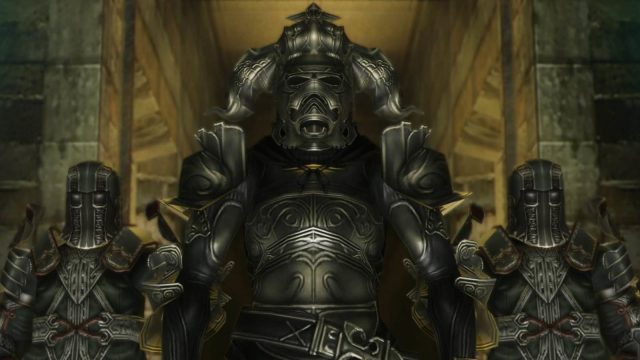You like crime novels? We got crime novels. You want classic TV? We got classic TV. Video games? Yep. Music? You bet. Sports? Doing our best. Movies? … stay tuned.
Other authors manipulate their ratings by making their self-published books temporarily free so that readers can “purchase” them and leave a positive review… As a result of this behind-the-scenes lobbying… far-right texts often seem to have better reviews than other kinds of books, which may affect how frequently Amazon recommends them. The first installment of [self-published neo-Nazi Billy] Roper’s trilogy has 70 reviews and a rating of four out of five stars. Roper even gave the book a five-star review on Goodreads: “I liked it so much that I’m currently working on the sequel!”
At ye olde AV Club, Anthony John Agnello talks about the impetus behind the Final Fantasy franchise and breaks out its best, worst and weirdest entries:
Hironobu Sakaguchi, the man who created the original Final Fantasy in 1987—expecting it to be the swan song of his game-making career—had a name for it. “Sabishii,” a Japanese synonym for “lonely,” is how he described the game he wanted to make. And he succeeded.
Speaking of 30-year-old franchises, Scott Tobias describes the strangeness of witnessing the Twin Peaks pilot when it first aired for The Guardian:
I was a senior in high school, working at a movie theater in suburban Atlanta, and I watched it alongside a concessionist with whom I used to trade enthusiasms about Marin Scorsese and Brian De Palma, and David Lynch’s Blue Velvet, which we had smuggled under our parents’ noses at the video store. It was the one and only time I’d ever spend at his house, and I don’t recall a word spoken between us until it was over. It was like nothing we had ever seen on television, and like nothing we had ever seen in a theater either.
So this becomes the new pleasure in watching recorded baseball games instead of live ones: the little ironies, the little surprises. I know how these games are going to end, but I don’t know how the people watching them and talking about them are going to react, or what they’re going to say. They couldn’t see the bigger picture then, just as I can’t see it now.
Partly this may be the result of Thomas’ cynicism about American politics — especially his vision of the Washington “intelligence” community as a motley crew of sellout turncoats-for-hire. Thomas’ characters were a far cry from the typical Schwarzenegger or John Wayne-style American hero. They don’t usually shoot it out or blow stuff up to save the world; they just play the game of politics and crime more smartly than the bad guys and, when they’re really good, take home all the money.
And finally, at the New York Times, Hanif Abdurraqib revisits a Bill Withers concert and remembers what made him unique:
Withers, in both formal interviews and informally recorded banter, could sometimes be crass, even abrasive, but rarely was he oversentimental. For this, the sentimental moments within his music feel more vulnerable and float above the emptiness of the feel-good machinery within so much of the celebrity-media industrial complex — the mutually assured sanitized reproduction of life.

